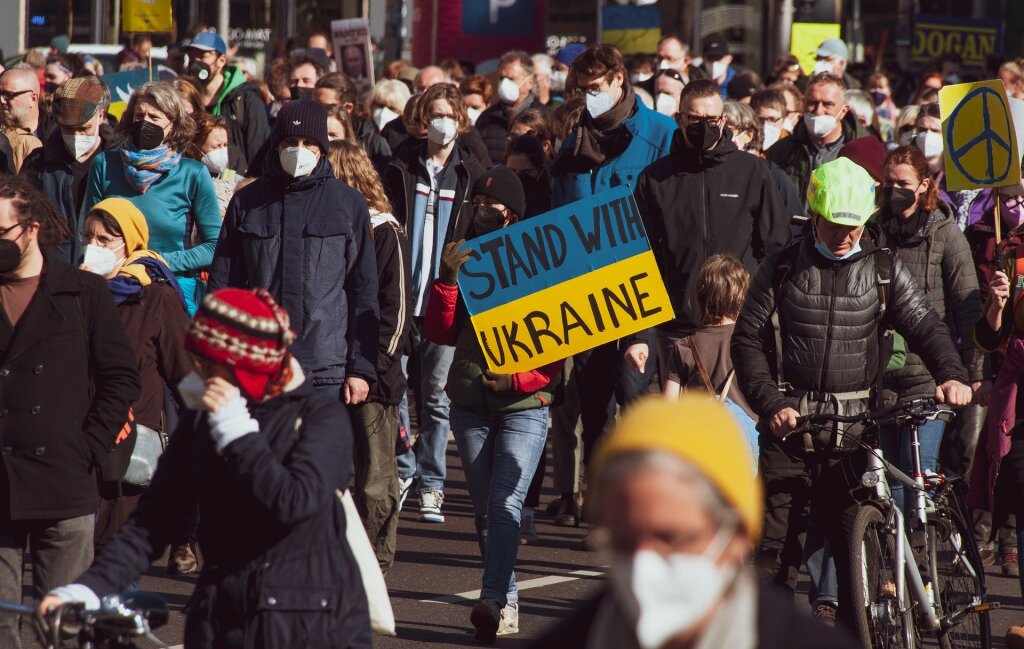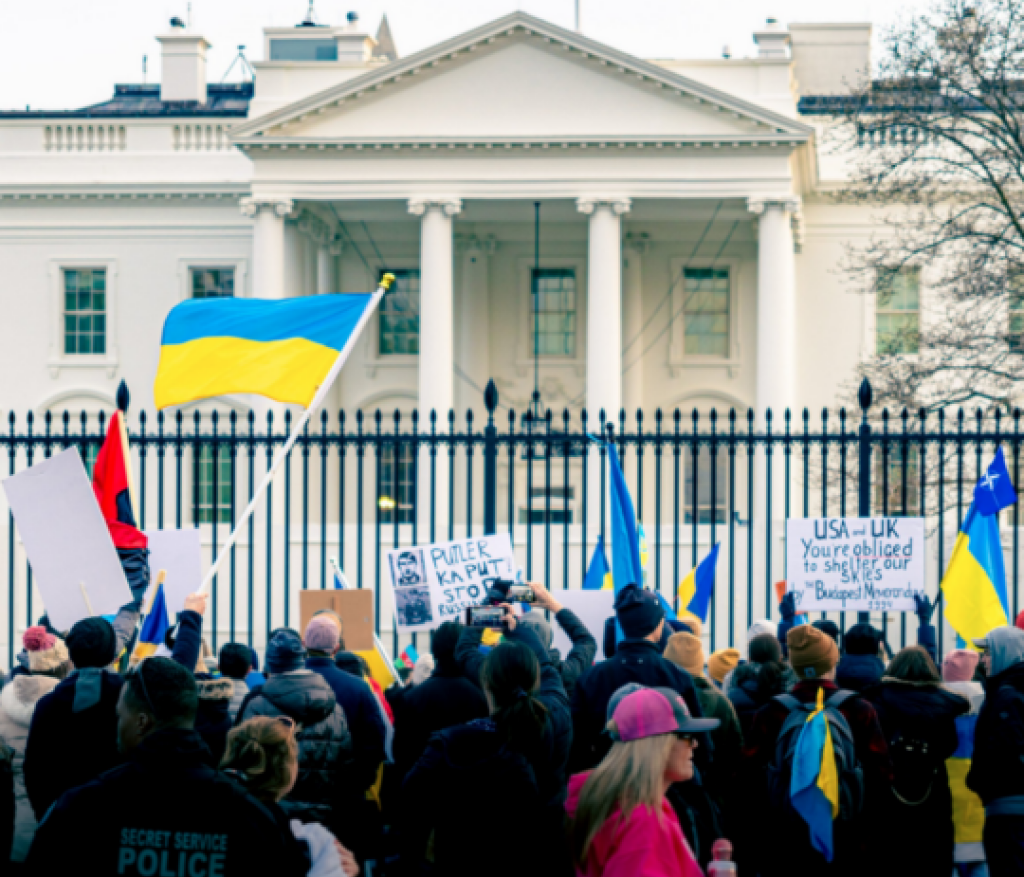The Jordan Center stands with all the people of Ukraine, Russia, and the rest of the world who oppose the Russian invasion of Ukraine. See our statement here.
This article originally appeared on Transitions on 4/6/2022.
Peter Rutland is a professor of government at Wesleyan University in Middletown, Connecticut.
Those who equate the Kremlin’s actions with recent American military operations overlook the crucial differences.
While Ukraine is winning the hearts and minds of Europe and North America, it is losing the propaganda war in the rest of the world. The role of the United States in global affairs in recent decades is so dominant that much of the public in China, India, Vietnam and elsewhere seem to have bought the Russian narrative that this is a war to stop Western expansion and domination.
There are many problems with this narrative – not least the fact that it completely denies agency to Ukraine. One Indian commentary carried the headline “Ukraine the pawn in the power game.” Ukrainians are just disposable pawns, with no will of their own.
There are at least five reasons why the Russian invasion of Ukraine should not be compared to America’s recent wars.
First, the U.S. has never claimed that the target of its military action does not have a right to exist as a country – as Putin has said of Ukraine. The US wanted “regime change” in Iraq, and recklessly tried to engineer a value change in that country, but never said that Iraq did not have a right to a state of its own.
Second, not since the occupation of Puerto Rico in 1898 has the US annexed a territory after a military conquest. In contrast, Russia annexed Crimea from Ukraine in 2014, and recognized the statehood of the breakaway Donetsk and Luhansk People’s Republics in February.
After WW2, the U.S. occupied Okinawa, but returned sovereignty of the island to Japan in 1971. In contrast, Stalin seized south Sakhalin and the southern Kurile Islands from Japan in 1945 and annexed them to the Soviet Union, expelling all the local Japanese residents. Russia still holds the exclave of Kaliningrad, formerly part of Prussia and annexed in 1945.
Third, the US invasion of Afghanistan and Iraq was in response to the 9/11 attacks. Where was the equivalent Ukrainian attack on Russia? Russia media claim that Ukraine was conducting a “genocide” of the residents of Donetsk and Lugansk, and unfortunately many Russians seem to believe that narrative. It is strange that Russia never brought this alleged genocide to the attention of the United Nations or other international organizations, and the monitors in Donbas from the Organization for Security and Cooperation in Europe did not notice it.
Fourth, the humanitarian interventions in Kosovo and Libya had widespread international support – and endorsement from the UN in the case of Libya. No other country has joined the Russian war on Ukraine – not even Belarus. Only five countries voted in support of Russia at the U.N. General Assembly on March 2 – while 141 voted to condemn their military action and 35 abstained.
Finally, many Americans criticized the decision to attack Afghanistan, and even more were opposed to the invasion of Iraq. Over time, the intelligence about weapons of mass destruction was proved to be a fabrication, and a majority of Americans now think that the invasion was a mistake. No such self-criticism is allowed in Russia. People aren’t even allowed to call it a ‘war’ or an ‘invasion,’ on pain of a 15 year jail sentence.
There are of course plenty of critics of American policy back home in the U.S. Political scientist John Mearsheimer blames NATO expansion for provoking the Russians into attacking Ukraine.
But NATO is a defensive alliance, which countries join of their own free will. It is not a military threat to Russia, since Russia is a nuclear power. There is no conceivable scenario in which a NATO country would dare to attack Russia. Physical buffer zones are not a military necessity in the nuclear age. Moreover, Ukraine itself is not a member of NATO and is unlikely to join anytime soon.
It is ironic that people in the countries of the Global South, who experienced Western imperialism in their own history, seem unable to recognize Russian imperialism in action. Perhaps this is because both the Russians and the Ukrainians are Europeans, with no racial distinction between them. The case of Irish nationalism – a pioneer in anti-colonial struggle which was an inspiration to many independence movements in Asia and Africa – serves to remind us that Europeans can be colonized by other Europeans.
As reflected in the vote condemning Russia at the United Nations, most diplomats from the Global South do see the invasion of Ukraine through a post-colonial lens. In a powerful speech on February 22, Kenyan U.N. Ambassador Martin Kimani insisted on respecting the territorial integrity of Ukraine. He argued “We must complete our recovery from the embers of dead empires in a way that does not plunge us back into new forms of domination and oppression.”



